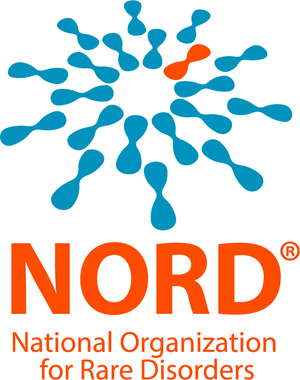WASHINGTON, Jan. 26, 2021 /PRNewswire/ -- In an effort to provide clear, useful, authoritative information to rare disease patients and caregivers on the COVID-19 vaccines, on January 15 the National Organization for Rare Disorders (NORD®), along with The ALS Association, Cystic Fibrosis Foundation and Muscular Dystrophy Association, hosted a special webinar with leaders from the US Food and Drug Administration (FDA) and the Centers for Disease Control and Prevention (CDC). In December 2020 FDA granted Emergency Use Authorization (EUA) for the Pfizer-BioNTech and Moderna vaccines against COVID-19, which are now being distributed.
The webinar provided several key takeaways and included discussion of the expedited clinical trials that resulted in FDA's issuing EUAs for the Pfizer-BioNTech and Moderna vaccines, the vaccines' high rates of effectiveness in combating COVID-19, as well as the imminent arrival of more vaccines, including a one dose option, that could drastically increase the ability to vaccinate the population quickly. Rare disease patients and caregivers were encouraged to get vaccinated as soon as possible, as many rare conditions put individuals at increased risk for severe outcomes from COVID-19.
The program featured Dr. Stephen M. Hahn, former Commissioner of Food and Drugs, FDA; Dr. Peter Marks, Director, Center for Biologics Evaluation and Research, FDA; and Dr. Amanda Cohn, Chief Medical Officer, Office of Vaccine Policy, Preparedness and Global Health, Office of the Director, NCIRD, CDC. Following an introduction from NORD President and CEO Peter L. Saltonstall, Dr. Hahn spoke of FDA's emergency use authorizations that have helped to bring vaccines to the public.
"FDA has always been and will always be for the application of rigorous science and good data," said Dr. Hahn. "We are committed to being as transparent as possible about the scientific basis for emergency use authorizations."
Dr. Marks elaborated on the vaccines that have been granted EUAs and their soundness, citing 94%-95% effectiveness found through large scale clinical trials.
"Both vaccines met the FDA's rigorous scientific standards for manufacturing quality, safety and effectiveness that were needed to support emergency use authorization," said Dr. Marks.
Dr. Cohn spoke of the CDC's efforts on the vaccination initiative currently underway and underscored the importance of people who are at risk, including rare disease patients, getting vaccinated.
"We are trying to ensure the people who are most at risk from severe outcomes from COVID-19 get vaccinated early," said Dr. Cohn, who went on to note CDC's list of underlying medical conditions is not exhaustive and only includes conditions with sufficient evidence to draw conclusions. "The list may not include every condition that might increase someone's risk for developing severe illness from COVID-19, like rare conditions, but we recommend individuals with any underlying medical condition consult with their healthcare providers about personal risk factors and circumstances to determine whether extra precautions are warranted."
The panel addressed questions from the rare community, touching on issues such as the effect of the vaccines on gene therapies and the emergence of new strains of COVID-19.
"As the leading voice of the rare disease community, it is inherent in NORD's mission to bring experts and stakeholders together for discussions on topics vital to patients and caregivers. We're proud to have worked with our partner hosts to present information on the new vaccines directly from FDA and CDC," said NORD's Peter L. Saltonstall. "We are grateful to Dr. Hahn, Dr. Marks and Dr. Cohn for participating and for the knowledge they were able to impart on this critical, timely issue."
The webinar is now available for on-demand access through longtime NORD partner PlatformQ Health's Conduit platform: https://bit.ly/Vaccines-Webinar.
About the National Organization for Rare Disorders (NORD®)
The National Organization for Rare Disorders (NORD) is the leading independent advocacy organization representing all patients and families affected by rare diseases in the United States. NORD began as a small group of patient advocates that formed a coalition to unify and mobilize support to pass the Orphan Drug Act of 1983. Since then, the organization has led the way in voicing the needs of the rare disease community, driving supportive policies, furthering education, advancing medical research and providing patient and family services for those who need them most. Together with over 330 disease-specific member organizations, more than 14,000 Rare Action Network advocates across all 50 states, and national and global partners, NORD delivers on its mission to improve the lives of those impacted by rare diseases. Visit rarediseases.org.
SOURCE National Organization for Rare Disorders (NORD)

WANT YOUR COMPANY'S NEWS FEATURED ON PRNEWSWIRE.COM?
Newsrooms &
Influencers
Digital Media
Outlets
Journalists
Opted In





Share this article